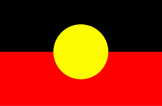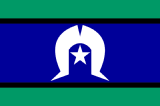The cost of education is high no matter what form of education you are hoping to offer a child in your care. For many carers, the Department of Families, Fairness & Housing (DFFH) or your Community Services Agency may well be able to assist with costs associated with putting children through school. Other government resources and support services are provided below.
Early Start Kindergarten (ESK) provides eligible children with 15 hours of free or low-cost kindergarten each week led by a qualified Victorian Institute of Teaching (VIT) registered teacher.
All children in Out-of-Home Care who are three years old by 30th April in the year they start kindergarten are eligible for Early Start Kindergarten.
For further information contact your local council or kindergarten or visit Early Start Kindergarten | Victorian Government (www.vic.gov.au)
The Department of Education and Training administers a range of student scholarships.
The scholarships are offered to primary, secondary, and tertiary students and are generally awarded to students who:
demonstrate academic achievement
demonstrate participation in their school and local community
are in financial need (determined by the parents/guardians being in receipt of a Health Care Card, a Low Income Health Care Card or a Pensioner Concession Card (Centrelink reference number required) or the students themselves receiving the Youth Allowance).
Further information about the different scholarships and applications processes are available from
The conveyance allowance is a form of financial assistance to assist eligible families in rural and regional Victoria and those that attend an eligible specialist school with the cost of transporting their children to their nearest appropriate school/campus or attend an eligible specialist school. This policy applies to both government and non-government schools.
Eligible children may need to travel by public transport or by private car, motorbike, bicycle or bus, and their nearest school is not serviced by a free school bus provided under the School Bus Program.
Schools are responsible for the day-to-day administration of the conveyance allowance, and communicating to parents/carers the travel options that are available for students in the area.
Schools administer applications for the conveyance allowance.
Further information is available at Conveyance Allowance Program: Policy | education.vic.gov.au
Students attending a specialist school may be eligible for travel assistance through the provision of buses, taxis, conveyance allowances and other transport solutions.
To qualify for assistance children must:
meet the criteria for the Program for Students with Disabilities
live in the designated transport area of their specialist school and
be enrolled at the school for three or more days each week.
Complete the application form and give it to your child’s school. You can also ask the school to complete the form for you.
Further information is available at Getting to and from school for students with disability | Victorian Government (www.vic.gov.au)
The School Bus Program is an extensive school bus network that provides travel at no cost to eligible students attending government and non-government schools and living in rural and regional Victoria.
Students deemed ineligible to travel at no cost may access a school bus service upon payment of a fare.
Application forms for the School Bus Program are available at your child’s school. Return completed forms to the school. You will then be advised whether your child is eligible to use the program.
SSR provides government school students with new uniforms, footwear, and educational resources, including learning devices. There is an online store available on the website.
Further information is available at State Schools' Relief (stateschoolsrelief.org.au)
Young people may be eligible for Youth Allowance if they are aged:
18 to 24 and studying full time
16 to 17, studying full time and either independent or needing to live away from home to study
16 to 17, studying full time and have completed year 12 or equivalent
16 to 24 and doing a full time Australian Apprenticeship
And
satisfy income and assets tests
be doing an approved course or full time Australian Apprenticeship.
Young people in state care must provide proof such as a court order or letter from their state or territory department to show that they are in the guardianship, care or custody of a court or government department, or that a current court, minister, or department direction has placed a young person in the guardianship, care, or custody of someone other than their parent.
For further information visit your local Centrelink office or call Centrelink on 13 24 90
Youth Allowance for students and Australian Apprentices - Services Australia
Carers can contact the Services Australia Grandparent, Foster, and Kinship Carer Adviser on 1800 245 965
Grandparent, Foster, and Kinship Carer Advisers - Services Australia
(The Aboriginal and Torres Strait Islander Study Assistance Scheme.)
Students can usually first get ABSTUDY when they start high school. Primary school students may also be eligible if they’re aged 14 years or older on 1st January in the year of study.
Depending on a student’s circumstances, ABSTUDY can help with school fees, boarding fees, living costs, travel costs, buying school materials.
For further information visit your local Centrelink office or call Centrelink on 13 24 90
Carers can contact the Services Australia Grandparent, Foster, and Kinship Carer Adviser on 1800 245 965
Grandparent, Foster, and Kinship Carer Advisers - Services Australia
This assistance may be available for
school age students who live in an isolated area, or
school age children with a disability or special health need that cannot be met at a local state school
The student must normally be enrolled in approved full-time primary or secondary study. A school aged student who does not have access to a state secondary school can be enrolled in approved full-time tertiary vocational education and training, for example a TAFE course, instead
For further information visit your local Centrelink office or call Centrelink on 13 24 90
Assistance for Isolated Children Scheme - Services Australia
Carers can contact the Services Australia Grandparent, Foster, and Kinship Carer Adviser on 1800 245 965
Grandparent, Foster, and Kinship Carer Advisers - Services Australia
LOOKOUT Education Support Centres are designed to boost the capability of early childhood services, schools, carers, child protection practitioners and out-of-home care services to improve educational outcomes for children and young people living in out-of-home care.
Carers should discuss accessing LOOKOUT supports with their agency worker and Care Team in the first instance.
LOOKOUT Education Support Centres | Victorian Government (www.vic.gov.au)
The Learning for Life program provides financial support, guidance and mentoring for disadvantaged students. The Smith Family works with a select number of schools and may require referral from the school principal.
Further information is available a tLearning for Life Program | Creating Better Futures (thesmithfamily.com.au)
The Association for Children with Disabilities (ACD) offers comprehensive information and support to education to care givers of children and young people with disabilities.
Find ACD here for their support line and subscribe to the newsletter https://www.acd.org.au
Follow ACD on Facebook https://www.facebook.com/acdvic/
There are three categories of education items or services for which schools can request payment from parents or guardians:
Essential education items for which the parent/guardian must pay to provide, or for which the parent/guardian must pay the school to provide (e.g. textbooks, stationary, school uniforms where required)
Optional educational items which are offered on a user-pays basis allowing the parent /guardian to choose whether their child has access to such items; (e.g. school magazines or extracurricular activities)
Voluntary financial contributions which parents and guardians may be invited to donate to the school.
School Councils are required to develop their own policy around these payments, with the stipulation being that the developed policy be in line with the
Department’s policy and it be made available to all parents and guardians upon request.
For further information go to Parent Payments: Policy | education.vic.gov.au
Most schools employ the services of a Welfare Officer and/or a School Chaplain. These staff members will be more than happy to assist you to access information around the school’s specific policies relating to the services outlined in this supplement. If you encounter difficulties when trying to access any of these services, please contact FCAV and we will do what we can to liaise and facilitate this process.
If you are having difficulty in meeting the financial obligations of schooling a child in your care, please ask for help. Refer to your Child Protection case worker, agency worker, support group or the Foster Care Association of Victoria if your need help or advice beyond what has been provided here.


